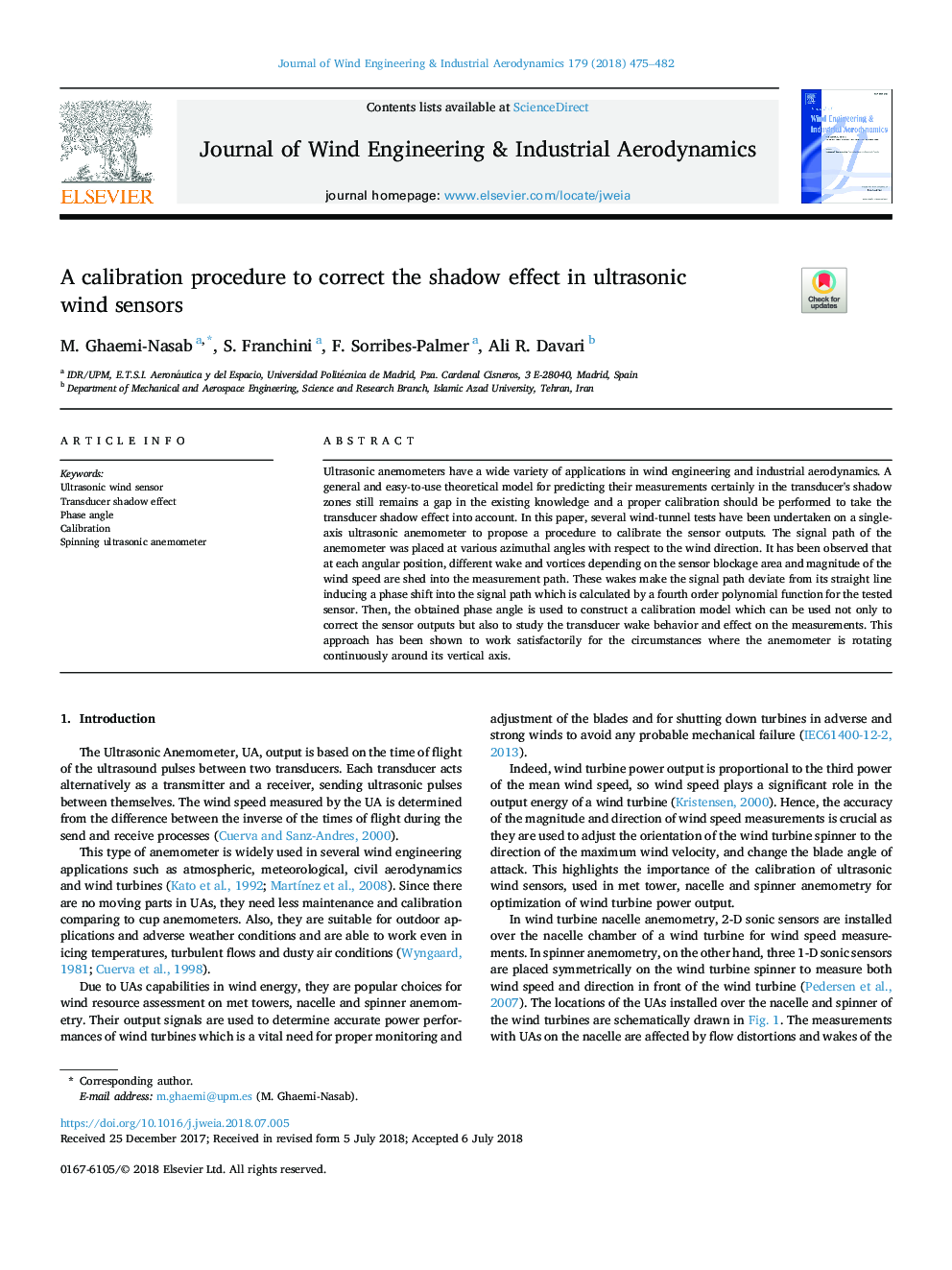| Article ID | Journal | Published Year | Pages | File Type |
|---|---|---|---|---|
| 6756840 | Journal of Wind Engineering and Industrial Aerodynamics | 2018 | 8 Pages |
Abstract
Ultrasonic anemometers have a wide variety of applications in wind engineering and industrial aerodynamics. A general and easy-to-use theoretical model for predicting their measurements certainly in the transducer's shadow zones still remains a gap in the existing knowledge and a proper calibration should be performed to take the transducer shadow effect into account. In this paper, several wind-tunnel tests have been undertaken on a single-axis ultrasonic anemometer to propose a procedure to calibrate the sensor outputs. The signal path of the anemometer was placed at various azimuthal angles with respect to the wind direction. It has been observed that at each angular position, different wake and vortices depending on the sensor blockage area and magnitude of the wind speed are shed into the measurement path. These wakes make the signal path deviate from its straight line inducing a phase shift into the signal path which is calculated by a fourth order polynomial function for the tested sensor. Then, the obtained phase angle is used to construct a calibration model which can be used not only to correct the sensor outputs but also to study the transducer wake behavior and effect on the measurements. This approach has been shown to work satisfactorily for the circumstances where the anemometer is rotating continuously around its vertical axis.
Keywords
Related Topics
Physical Sciences and Engineering
Energy
Renewable Energy, Sustainability and the Environment
Authors
M. Ghaemi-Nasab, S. Franchini, F. Sorribes-Palmer, Ali R. Davari,
